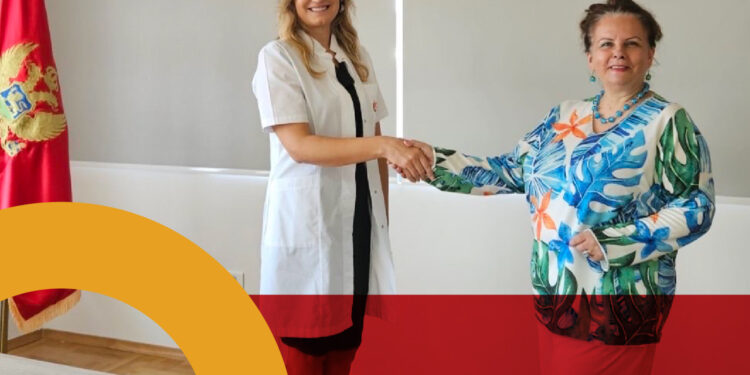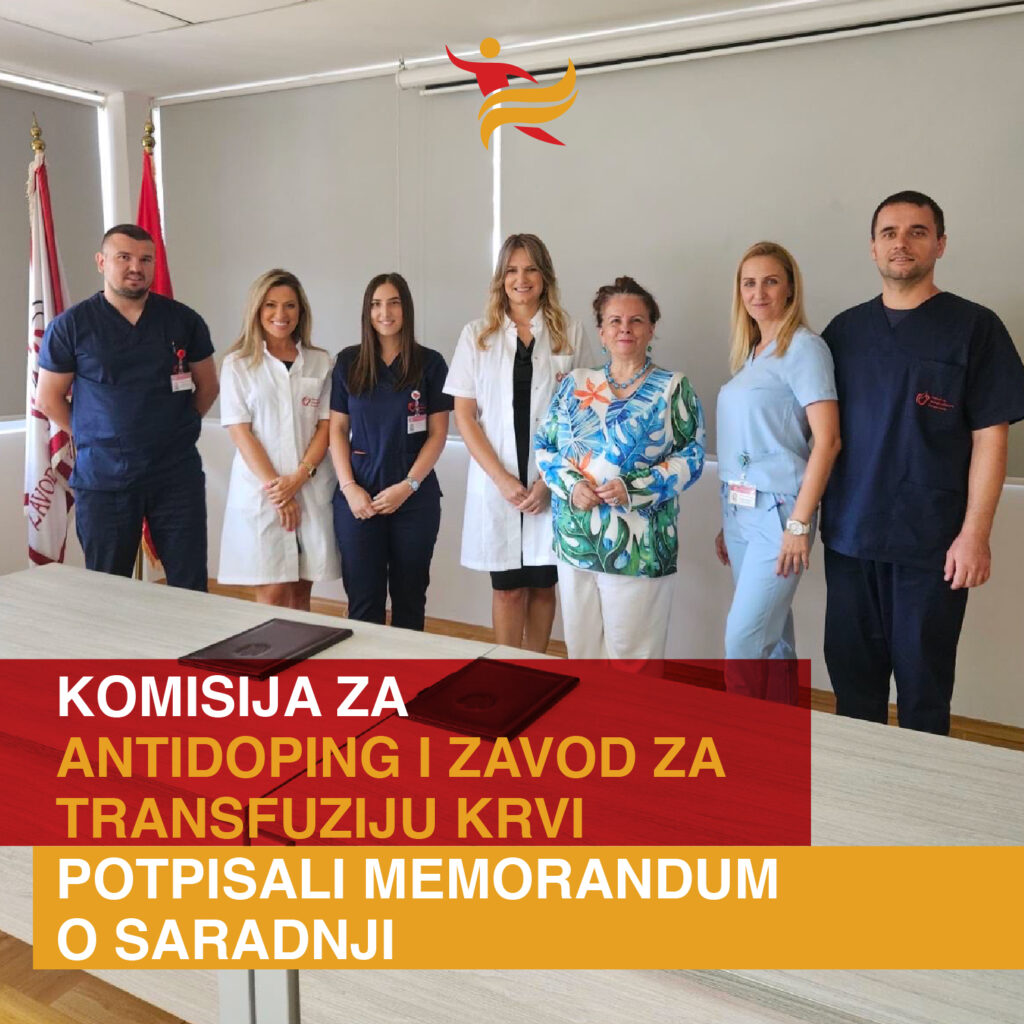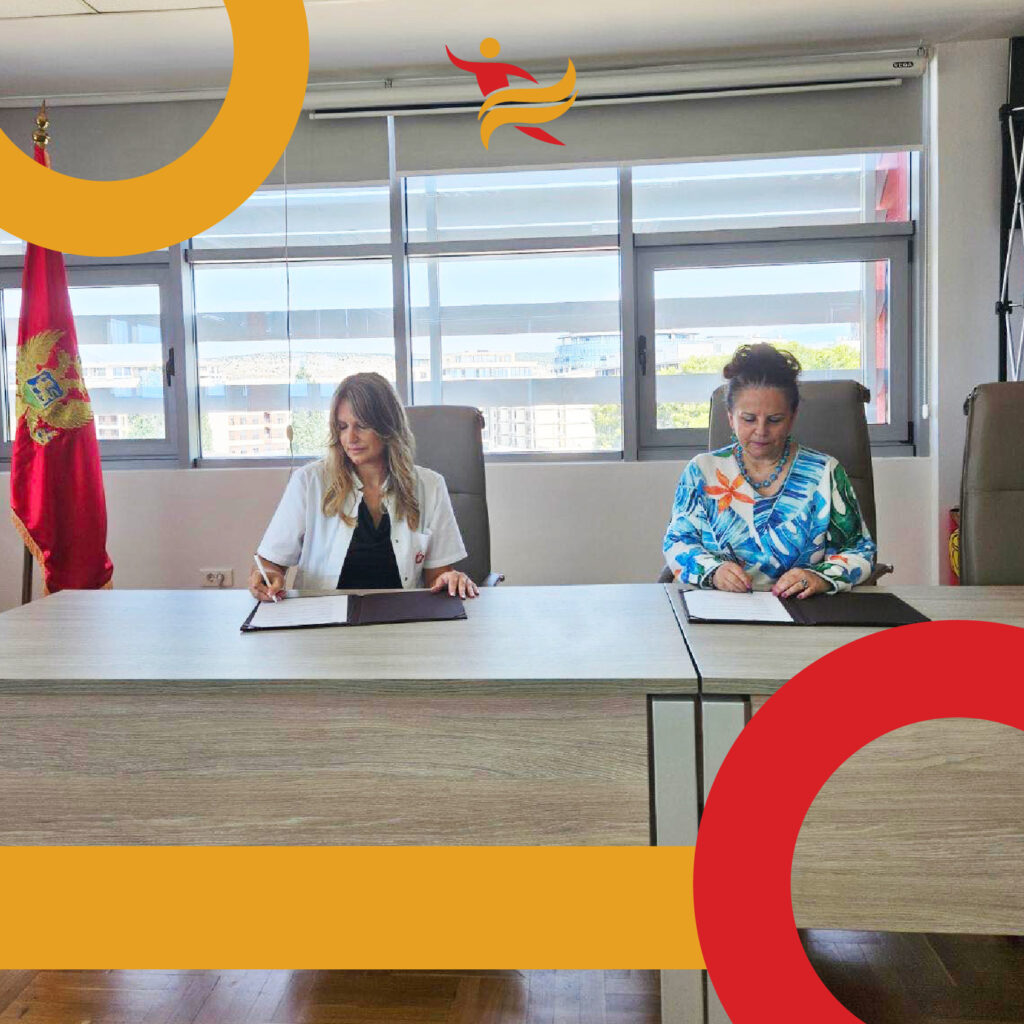


In order to provide athletes with the best conditions for fair competition and health protection, the Anti-Doping Commission and the Institute of Blood Transfusion of Montenegro signed a Memorandum of Understanding. This agreement, recognizing the importance of professional and scientific support, enables the implementation of advanced anti-doping activities in accordance with international standards.
Director of the Commission, Dr. Olivera Prodanović, and Director of the Institute, Dr. Tamara Šćepanović, assessed that this initiative, which includes thorough training and practical application, ensures a high level of professionalism and efficiency in the fight against doping.
“The choice of cooperation with the Institute of Blood Transfusion of Montenegro was a logical step considering their expertise and experience in the field of hematology. Their team, led by Dr. Šćepanović, possesses the necessary competencies and enthusiasm that are key to the implementation of anti-doping activities. Our goal is to provide the highest standards in testing and preserving the health of athletes through this cooperation, and the support and expertise of the Institute of Blood Transfusion guarantee that we will succeed in this,” said Director Prodanović.
She said that Dr. Marina Sekulić, Dr. Đorđe Zogović, Tamara Gogić, Danijela Mihaljević, Miroslav Leković, Sanja Radošević are an exceptional team and an excellent addition to the expert associates of the Anti-Doping Commission.
“With further improvement and gaining experience, he will undoubtedly prove themself on the international level as well”, added Prodanović.
Director of the Institute Dr. Tamara Šćepanović, pointed out the importance of involving the employees of that institution in modern professional and scientific streams.
“Through intensive workshops and lectures by sports health and anti-doping experts, our staff will be better equipped to support the health and integrity of athletes and ensure fairness and safety in sport. The Institute remains committed to the continuous professional development of its employees in order to provide the highest level of health care and contribute to the fight against doping in sports,” said Dr. Šćepanović.
Prodanović is specified that the cooperation between the two institutions was also strengthened through training for the implementation of the hematology module, which was organized this month in Vienna, with the support of the mentoring Anti-Doping Agency of Austria (NADA Austria).
“The topics were doping control of blood samples, athlete’s biological passport, international standard for testing and investigations, guidelines for sample collection. The next segment of the training will be in the form of practical application during the collection of blood samples”, specified Prodanović.
The further goals of this cooperation are more far-reaching than the simple high-quality implementation of the necessary doping controls. Our goal is to build a culture of sport based on integrity, honesty and ethics, and to inspire the next generation of athletes to strive for excellence without resorting to illicit means.
